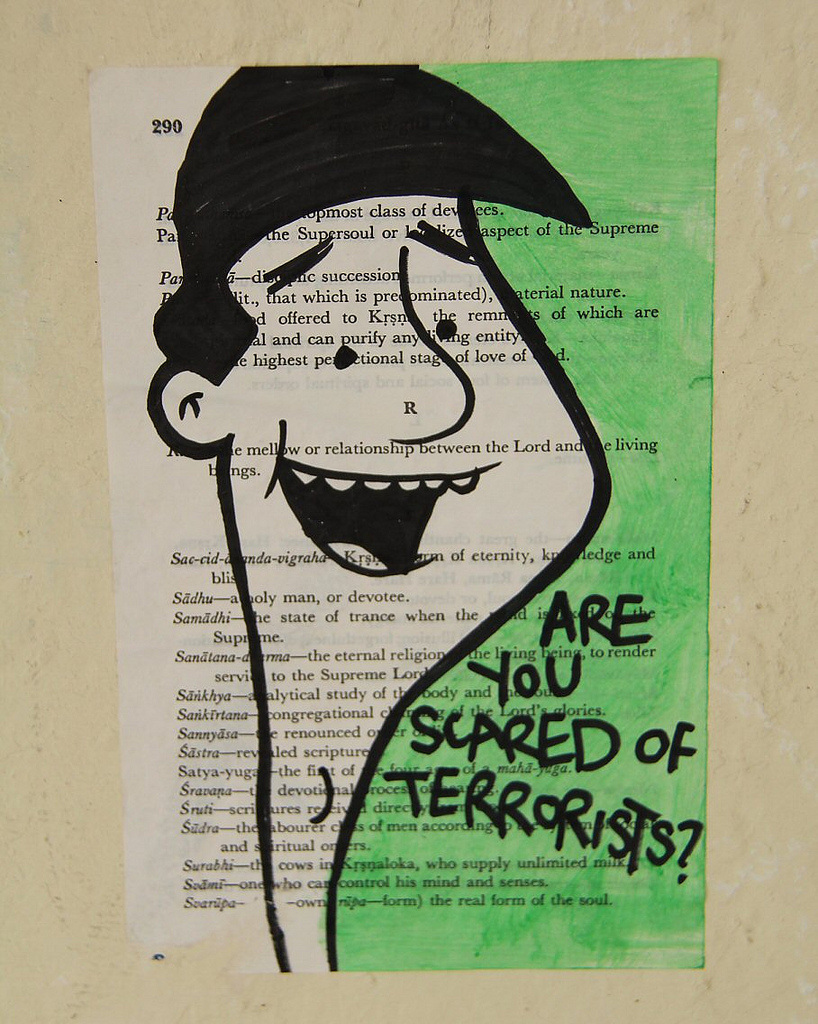| I’ve been imagining the looks on the faces of recruits as they were handed the three-page application for membership in al Qaida; their pensive expressions as they reached for newly sharpened No. 2 pencils. Had they escaped the Western world and made it this far into forbidden territory only to be stymied by the lack of proper references? “List your previous occupations:” Did they consult a phone book for addresses or have to go through the mental process of remembering approximate hire dates and reasons for leaving? “Have you been ever convicted by any court? When, and who convicted you? What was the offense?” Did they wonder whether to include traffic |
| | citations? Was anyone going to check? “Any hobbies or pastimes?” The startling thing about the application Navy Seals found in Osama bin Laden’s compound, made public on Wednesday, is that it contains vestiges of civilized society, right in the heart of something we have been conditioned to view as fanatical and medieval. Applicants are asked to “please” answer truthfully, and to “please” write legibly. They could put today’s date in A.D., or in the Hijri calendar, and they were asked to “please answer in the language you know.” It could be an application to work at a fast food place or a call center for the summer. Until, that is, you get to the show-stopping questions. “Do you wish to execute a suicide operation?” “Whom should we contact in case you became a martyr?” Make no mistake, these are the folks who masterminded the 9/11 attacks on New York, Washington and Pennsylvania; who thought of using box cutters to mercilessly kill flight attendants and pilots and to guide airplanes toward thousands of innocent people. While ISIS is not synonymous with al Qaida, CNN reported earlier this year that FBI and Justice Department officials have been worried about keeping Westerners from joining radical terror groups since 9/11. ISIS, however, is much better at it than al Qaida. And so, on Tuesday, an FBI analyst felt it necessary to visit a charter school in New Jersey to warn students about the ways ISIS uses social media and slick videos to lure them into a life that won’t live up to promises. It was, according to NJ.com, part of a nationwide effort to counter terrorist recruitment. CNN reports 3,400 people have left the comforts of Western civilization so far to join what many would consider a stifling and oppressive movement. The rest of us are left to wonder why. Columnist and former teacher Chloe Combi wrote on CNN.com that it has a lot to do with how young people see the world. “At its heart lies a duel between good and evil,” she wrote. And just as in the literature and movies young people enjoy — Harry Potter, for instance — there is only light and dark. While teen rebellion remains as constant as ever, “In Western thought, dying for an ideology is virtually obsolete now,” she wrote. For a teen, risking everything for an ideology may seem romantic and honorable. And for a young Muslim, ISIS may seem like the answer to a lot of problems. Her opinion is based on two years worth of interviews with teenagers in Britain. CNN quotes British Prime Minister David Cameron recently calling on schools, universities and communities to play a role in stemming these recruiting efforts. He left out two institutions, however: families and religions. Strong families convey a sense of purpose and belonging, true pillars of civilization that can make counterfeits readily apparent. Considerable research, much of it cited on familyfacts.org, shows how positive religious practice leads to less delinquency among teens. To win the recruiting war, the West must expose the vestiges of civilization for what they are. To be clear, those who fill out applications to join the enemies of civilization are few. But it doesn’t take many to ignite widespread terror. If nothing else, the administration’s decision to make public some of what was found in bin Laden’s compound reminds us we can never be complacent, nor can we take for granted the institutions that preserve what matters. |


 RSS Feed
RSS Feed

